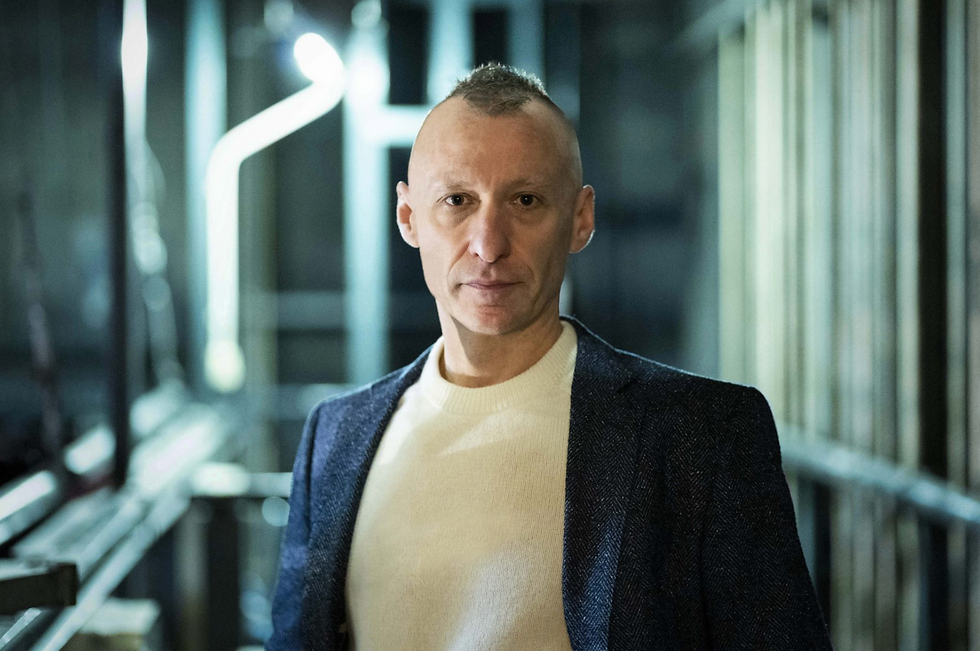Shouldn't We Scream Blue Murder?
- Open Scene

- Aug 25, 2024
- 4 min read
Updated: Jan 7, 2025

Florida’s cultural and creative sectors (CCS) have been dealt a heavy blow with the recent 98.3% budget cut for 2025, driven by Governor Ron DeSantis. This drastic reduction represents not only a significant setback for the Sunshine State but should also raise alarms on a national level. The United States keeps falling behind globally in recognizing the critical importance of public investment in CCS—an area many other countries understand as essential to economic and social growth, well-being, and as a catalyst for innovation.
The U.S. government invests less in arts and culture than many other countries due to a combination of historical, cultural, political, and economic factors such as political priorities, ideology, decentralization, and cultural context.
As Hector Tobar, a Californian Pulitzer Prize winner, poignantly observes in Our Migrant Souls: A Meditation on Race and the Meanings and Myths of “Latino:”
“The locals are united in the unfettered pursuit of individualism, and in their collective indifference to the suffering of others.”
This statement, unfortunately, provides a stark definition of a lack of empathy.
Empathy, in its simplest form, is “the ability to understand and share the feelings of another.” And you know what? It’s proven that one of the strongest effects of the arts is boosting empathy. Just consider the insights shared in the 2021 article Art and Empathy: Four Thought Leaders Explain the Connection, published by the Minneapolis Institute of Art (MIA):
“Art can be a powerful way for us to gain a better understanding of human emotions and stories. It gives us a unique lens to look at artists’ inner worlds. It trains our brains to slow down and think more rationally, instead of emotionally. It restores our capacity to connect with others. Art plays a unique role in re-establishing humanity in this technology-dominated world.” — Terry Wu, PhD, neuroscientist and founder of Why The Brain Follows.
“I’ve found that different kinds of arts engagement can help to build empathy for others. The arts can help to expand our minds and hearts so that we see our own and others’ worlds better.” — Sara Konrath, PhD, social psychologist and associate professor of Philanthropic Studies, Indiana University–Purdue University Indianapolis.
“Art is an expression of the human condition, and this medium allows and encourages us to experience the emotions and perspectives of other people past and present, including those of the artist who created it, the person/people depicted in the artwork, as well as those of the people you experience and discuss it with.” — Karleen Gardner, Director of Learning Innovation and the Center for Empathy & the Visual Arts at MIA.
Why Public Investment in Culture Matters
But it’s not only a matter of empathy—who cares about feelings, right? The Organisation for Economic Co-operation and Development (OECD) and various cultural observatories worldwide emphasize that funding for cultural and creative sectors is more than just an expenditure—it’s an investment with substantial economic and social benefits. Public support in this area is crucial for fostering innovation, driving economic development, and enhancing community cohesion.
We’re talking about direct benefits like trillions of dollars in return on investment, millions of jobs generated, and indirect benefits like making our cities more desirable, attracting high-level human resources, real estate investments, and overall economic growth.
Investing in culture is not just about giving $5 to a folkloric dance group or painting a canvas while sipping wine. Cities like New York, London, and Paris have long been recognized as global hubs for arts and culture. Their success is not accidental—it’s the result of strategic urban planning, active community engagement, and targeted support for creative industries. These cities have embraced multiculturalism as an asset, preserved and adaptively reused historical or industrial spaces, and maintained active collaboration between government, private investors, and cultural stakeholders.
Far from these overpopulated and overpromoted metropolises, other societies demonstrate their deep belief in the transformative power of arts and culture by investing in amounts that might seem mind-blowing to us here in the States.
Parallelly, the Artists’ Association of Finland states:
“Art is a fundamental right of every citizen, which must be financed by public funds and seen as a public service, like education and health care. Art improves the quality of life and is scientifically proven to promote holistic well-being.”
Countries like Australia invest $215 per capita in arts and culture, and Finland, allocates $105 per capita. Meanwhile, the U.S. lags far behind at a meager $6 per capita. Yes, six dollars.
We Deserve More—Stop the Conformism
We know we can create a better world—this isn't naive optimism. We must demand continued and fair investment in arts and culture. Arts matter. Culture is everything we are, so it is essential. Arts and culture are as vital as food and shelter; they aren't a privilege for a select few—they are a human right.
Additional sources:
Image:
Dubai's Museum of the Future https://creativecommons.org/licenses/by-sa/4.0/









What a powerful call to action!